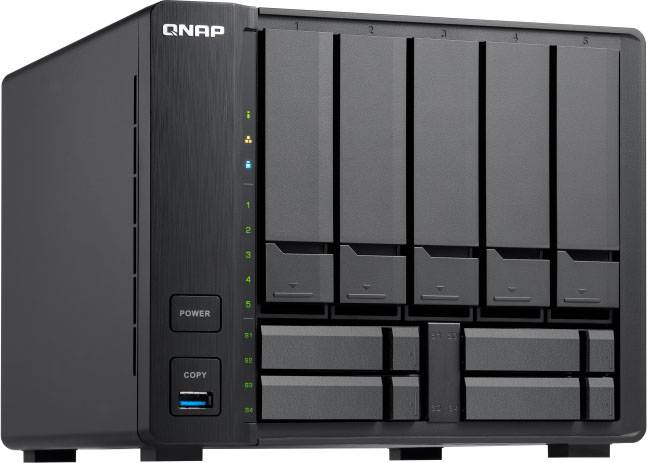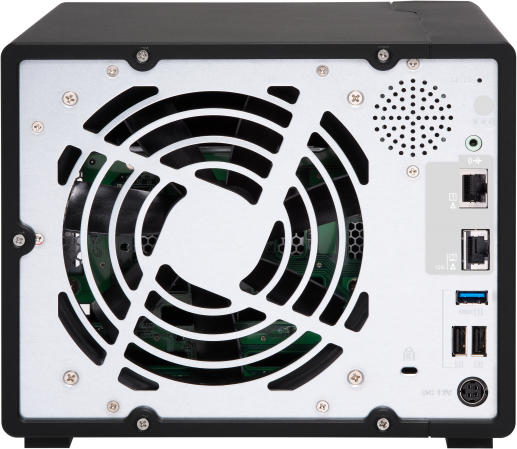- Qualcomm Launches Snapdragon 4 Gen 2 Mobile Platform
- AMD Launches Ryzen PRO 7000 Series Mobile & Desktop Platform
- Intel Launches Sleek Single-Slot Arc Pro A60 Workstation Graphics Card
- NVIDIA Announces Latest Ada Lovelace Additions: GeForce RTX 4060 Ti & RTX 4060
- Maxon Redshift With AMD Radeon GPU Rendering Support Now Available
QNAP’s TS-963X A 9-bay NAS In A 5-bay Size, Powered By AMD G-Series Quad-Core SoC
As someone who’s used five-bay NASes for quite some time, I’ve come to feel like it’s the “perfect” size. Four of the bays can be used for RAID5 (not that this is particularly suggested for huge volumes), and the spare could be used when one of the other four drives needs to be replaced, or used as a junk drive if there are other redundancy options in place.
One thing that’d make me look at an option other than a standard five-bay would be one that includes SSD storage capabilities on the side, much like QNAP’s TS-963X, a nine-bay option that fits into a five-bay form-factor. At the top are five 3.5-inch bays for your meaty storage, and at the bottom are four 2.5-inch bays for solid-state drives.

The word “cache” gets thrown around a lot when it comes to HDDs and SSDs being pair together, but in this case, “tiering” is the actual mechanic. Data will continually move between the HDD and SSD, rather than be copied. That means your most accessed data will be placed on the faster flash storage, while the rest will sit on the slower mechanical drives. In a multi-user environment which sees many people accessing the same files, this could help, and likewise, it could help if you are using a NAS as a house for your movie project files.
The TS-963X comes in two configurations, one with 2GB of memory, and the other with 8GB. Whichever model is chosen can be upgraded on your own to 16GB, should the need arise. And, because SSDs in a NAS would be a little wasteful (outside of IOPS, perhaps) in a 1Gbps NAS, a single 10GBASE-T connector is located at the back. This port doubles for 5G, 2.5G, 1G, and 100M speeds, if you can’t take advantage of the full pipe.

This NAS also includes AES-256 encryption support, provided by the SoC, which will allow you to encrypt all of your data with a minor performance hit (minor, for a major gain, depending on the sensitivity of your data). The back of the NAS has three USB ports, with two bringing 2.0 speeds, and the other, 3.0. Another 3.0 port is found at the front, for a more accessible option.
Pricing for the TS-963X hasn’t been officially announced (that I can see), but multiple etailers, such as Amazon, have begun selling it for about ~$800 USD. That price will put it into a more specific audience than the simple home user, but with its SSD options, and tiering technology built-in, and not to mention a beefier than normal CPU and memory configuration, and 10GbE, it’s going to be an attractive choice for small business owners or high-end workstation users.




